
Glicrite OD 30mg/500mg Tablet ER
Manufacturer
Eswar Therapeutics Pvt Ltd
Salt Composition
Gliclazide (30mg) + Metformin (500mg)
Key Information
Short Description
Glicrite OD 30mg/500mg Tablet ER is a combination of two medicines used to treat type 2 diabetes mellitus in adults. It helps control blood sugar levels in people with diabetes.
Dosage Form
Tablet ER
Introduction
Glicrite OD 30mg/500mg Tablet ER belongs to a category of medicines known as anti-diabetic drugs. It is a combination of two medicines used to treat type 2 diabetes mellitus in adults. It helps control blood sugar levels in people with diabetes.
Directions for Use
Take this medicine in the dose and duration as advised by your doctor. Swallow it as a whole. Do not chew, crush or break it. Glicrite OD 30mg/500mg Tablet ER is to be taken with food.
How it works
Glicrite OD 30mg/500mg Tablet ER is a combination of two antidiabetic medicines: Gliclazide and Metformin.
Quick Tips
Monitor your blood sugar level regularly while you are taking this medicine. It can cause hypoglycemia (low blood sugar level) when used with other antidiabetic medicines, alcohol or if you delay or miss a meal. Inform your doctor about your diabetes treatment if you are due to have surgery under a general anesthetic. Tell your doctor immediately if you experience any deep or rapid breathing or if you have persistent nausea, vomiting and stomach pain as Glicrite OD 30mg/500mg Tablet ER may cause a rare but serious condition called lactic acidosis. Monitor your blood sugar level regularly while you are taking this medicine.
Related Medicines
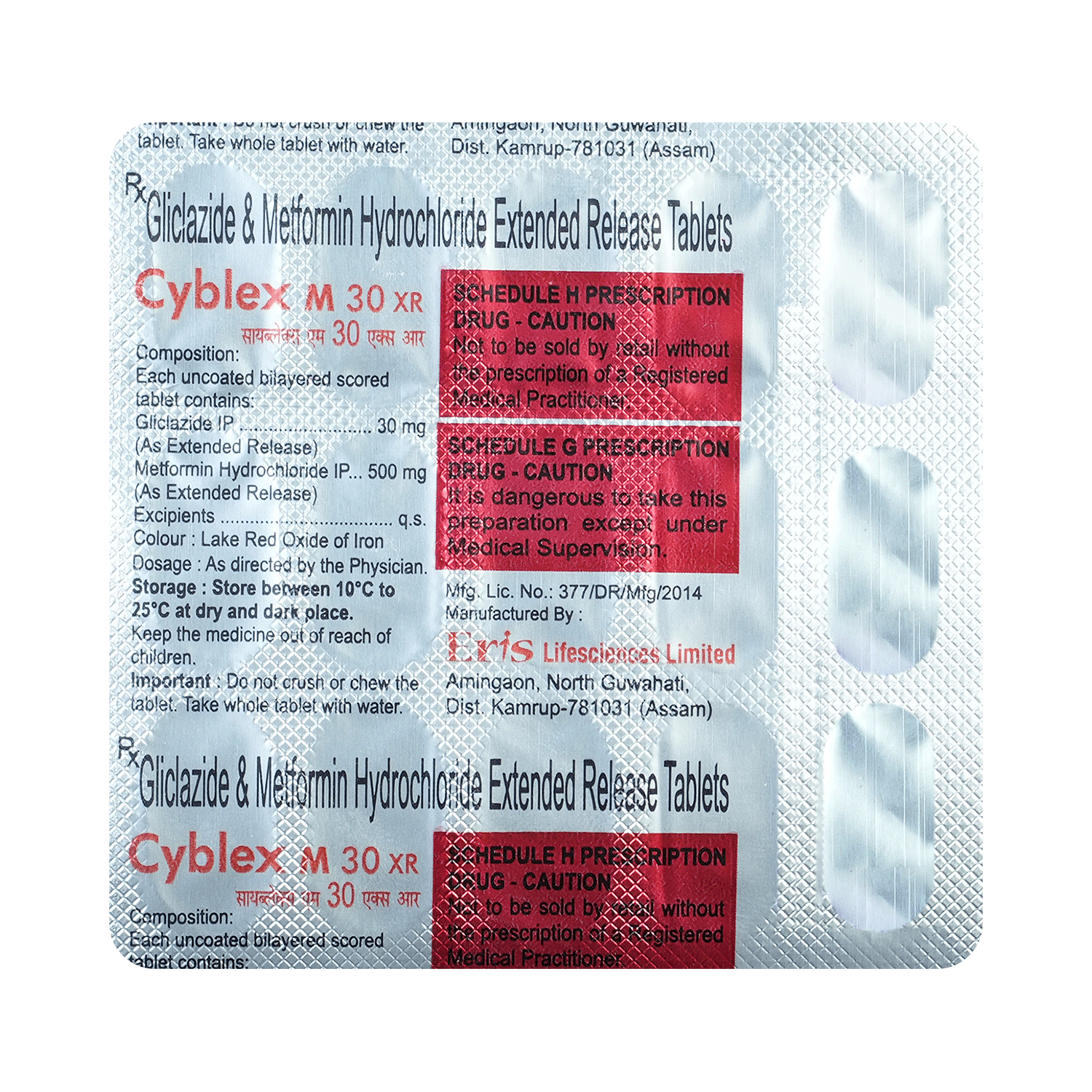
Cyblex M 30 XR Tablet
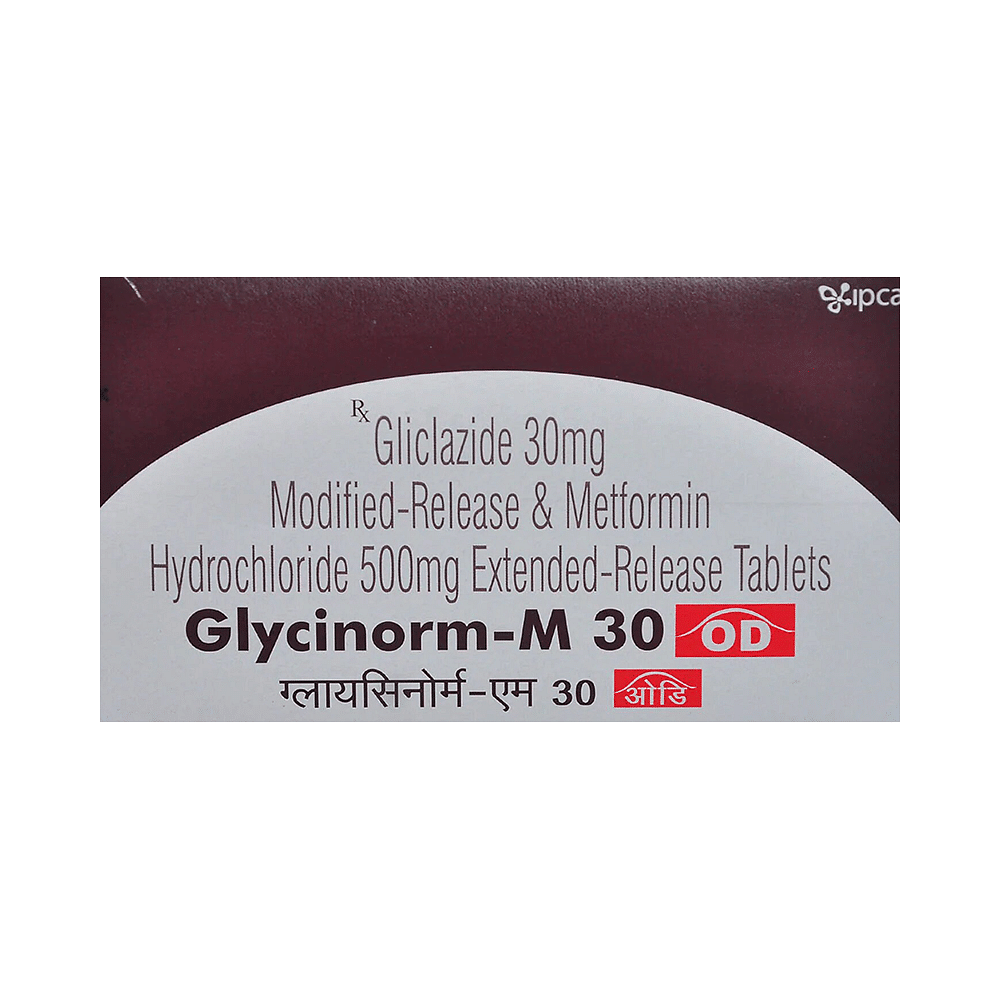
Glycinorm-M 30 OD Tablet ER
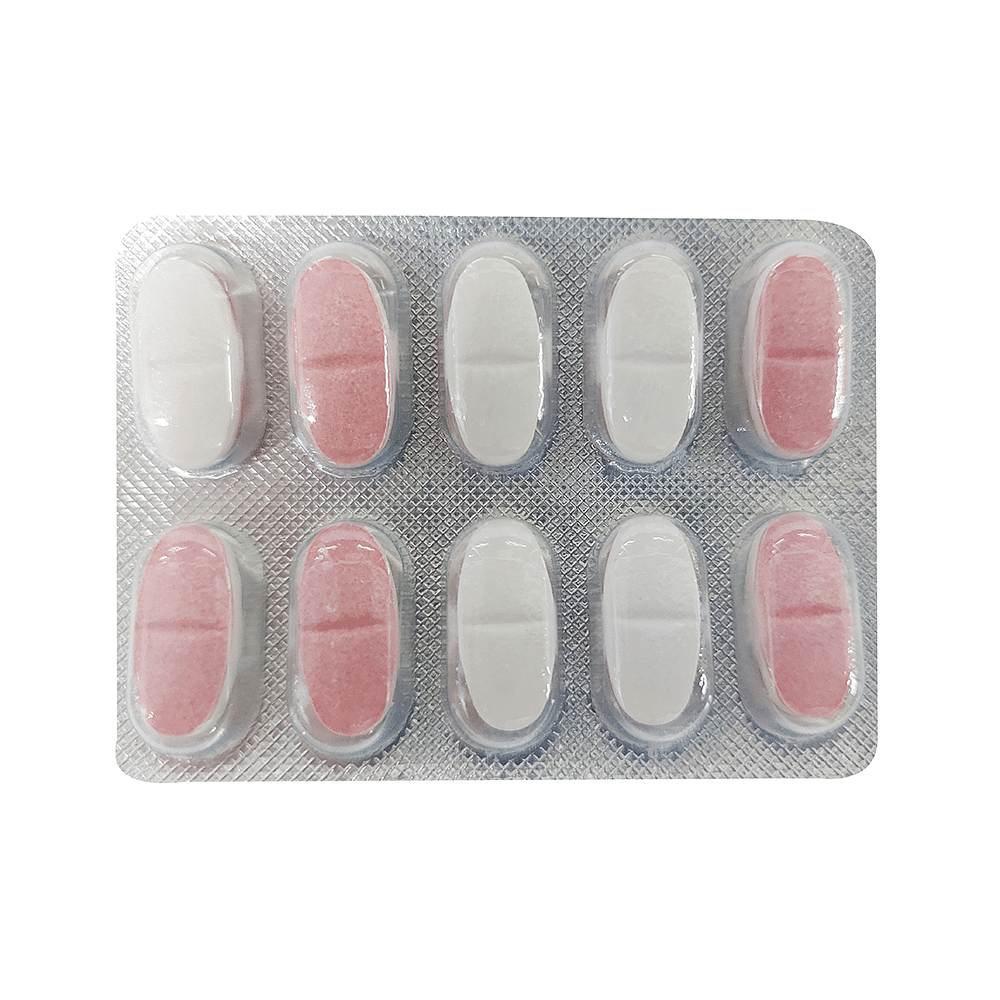
Glizid-M XR 30 Tablet

Diamicron XR Mex 30/500 Tablet
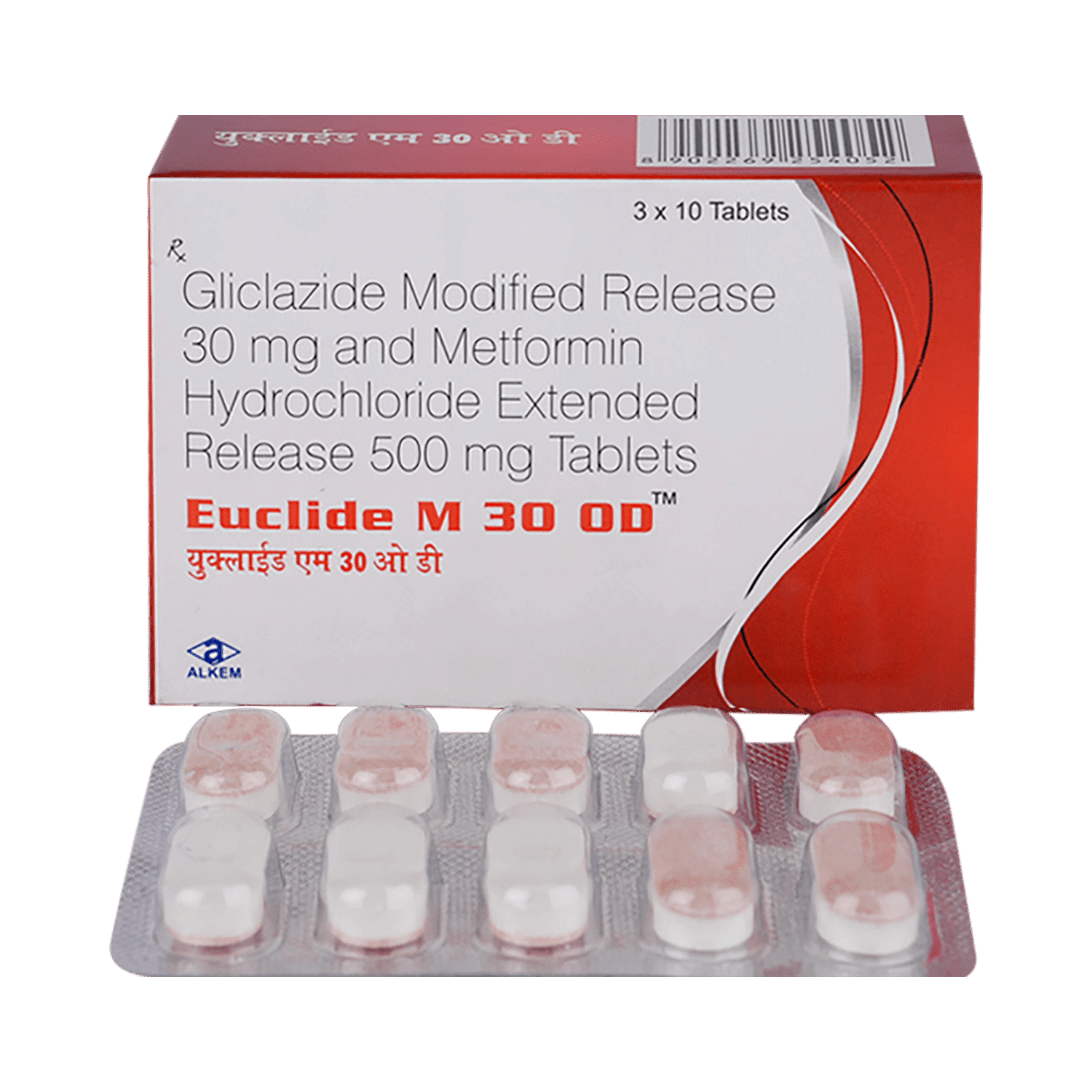
Euclide M 30 OD Tablet ER

Diabend-MEX 30 Tablet ER

Flisur 30mg/500mg Tablet ER
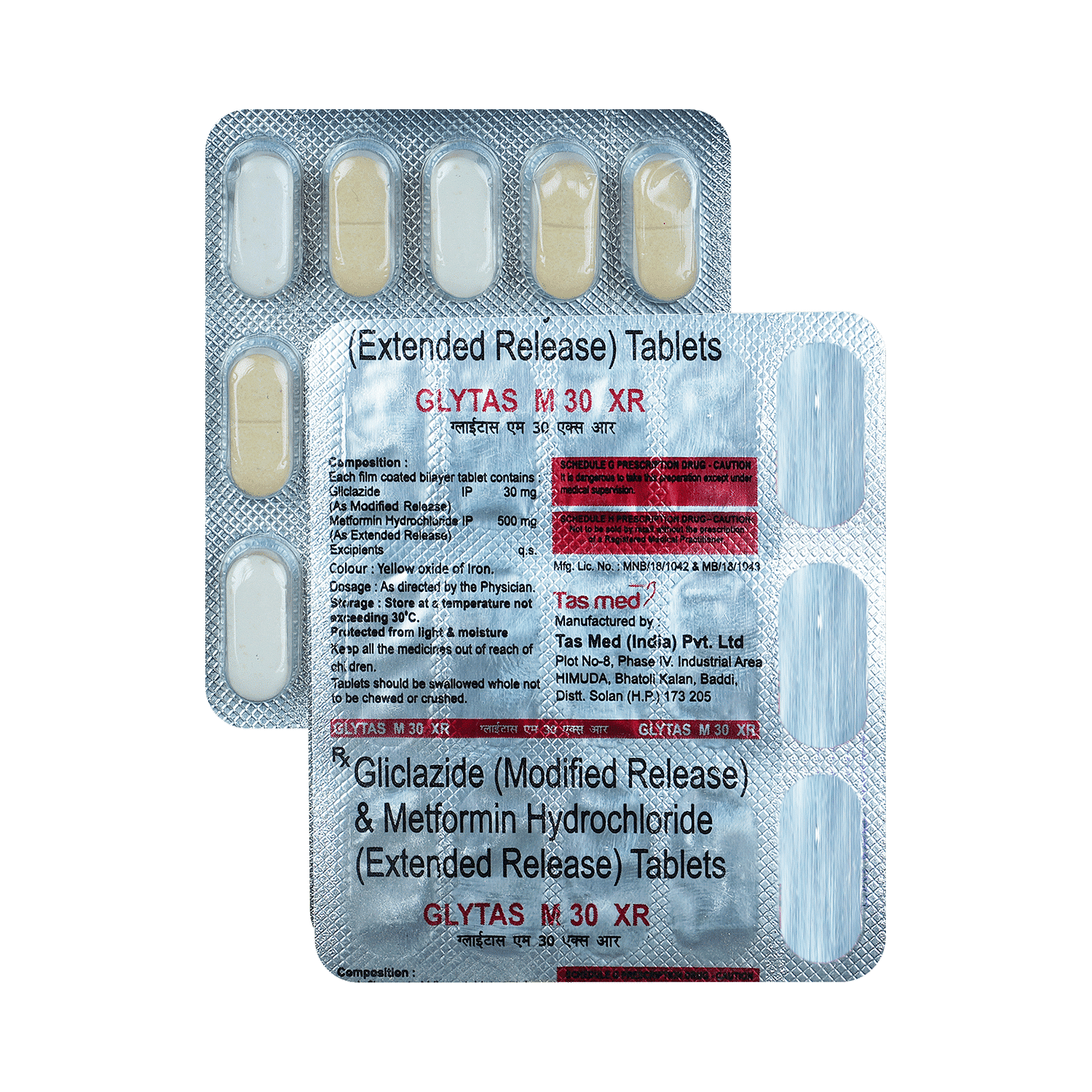
Glytas M 30mg/500mg Tablet ER

Xzid M30 XR Tablet ER
Frequently asked questions
What is Glicrite OD 30mg/500mg Tablet ER?
Glicrite OD 30mg/500mg Tablet ER is a combination of the medicines Gliclazide and Metformin. This medication is used to treat type 2 diabetes mellitus (DM). It improves blood glucose levels in adults when taken alongside a healthy diet and regular exercise.
What are the possible side effects of Glicrite OD 30mg/500mg Tablet ER?
Like many medications, Glicrite OD 30mg/500mg Tablet ER can have potential side effects. These may include: Hypoglycemia (low blood sugar), altered taste, nausea, stomach pain, diarrhea, headache, and upper respiratory tract infections. In rare cases, it may also lead to lactic acidosis.
Can the use of Glicrite OD 30mg/500mg Tablet ER cause hypoglycemia?
Yes, using Glicrite OD 30mg/500mg Tablet ER can lead to hypoglycemia (low blood sugar). Symptoms include nausea, headache, irritability, hunger, sweating, dizziness, fast heart rate and feeling anxious or shaky. Regular monitoring of your blood sugar level is important.
Can the use of Glicrite OD 30mg/500mg Tablet ER cause lactic acidosis?
Yes, the medication may lead to lactic acidosis. It's a medical emergency caused by an increase in lactic acid in the blood. If you experience symptoms like muscle pain or weakness, dizziness, tiredness, feeling of cold in arms and legs, difficulty breathing, nausea, vomiting, stomach pain, or slow heart rate, stop taking the medication immediately and consult your doctor.
Can the use of Glicrite OD 30mg/500mg Tablet ER lead to Vitamin B12 deficiency?
Yes. Long-term use of Glicrite OD 30mg/500mg Tablet ER can potentially lead to a vitamin B12 deficiency. This is because the medication interferes with the absorption of vitamin B12 in the stomach. If left untreated, this could lead to anemia and other nerve problems like tingling and numbness.
Are there any specific conditions in which Glicrite OD 30mg/500mg Tablet ER should not be taken?
It's important to talk with your doctor before starting or stopping this medication. However, it is generally advised that people with known allergies to the components or excipients of this medication should avoid its use. Additionally, individuals with moderate to severe kidney disease and underlying metabolic acidosis (like diabetic ketoacidosis) may need special considerations.
Is it safe to take alcohol while I am also taking Glicrite OD 30mg/500mg Tablet ER?
No, It's not safe to combine alcohol with Glicrite OD 30mg/500mg Tablet ER. Alcohol may lower your blood sugar levels (hypoglycemia) and increase the risk of lactic acidosis.


